Change Rise

What is the relationship between groundwater depletion and sea-level rise ?
Groundwater depletion and sea-level rise are interconnected environmental issues that share a relationship with climate change. Both phenomena have significant implications for global ecosystems and human societies, including reduced water availability, coastal flooding, saltwater intrusion, and habitat loss. The connection between groundwater depletion and sea-level rise lies primarily in their shared relationship with climate change and its effects on hydrological cycles. Addressing these challenges together within a broader context of climate change adaptation and sustainable resource management is crucial for developing effective strategies to mitigate their impacts on our environment and society.
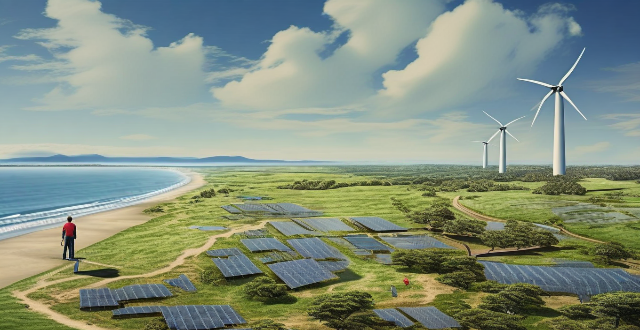
How do climate-related risks such as sea level rise and temperature increase affect energy production and distribution ?
Climate change poses significant risks to the energy sector, affecting both production and distribution. These risks include reduced power plant efficiency due to higher temperatures, changes in energy demand patterns, disruptions to infrastructure from sea level rise and extreme weather events, shifts in preferred energy sources, the need for adaptation and resilience efforts, and potential regulatory and policy changes aimed at reducing emissions and promoting renewables. Addressing these challenges requires a comprehensive strategy that encompasses both adaptation and mitigation measures to ensure a sustainable and resilient energy future.

How does climate change contribute to the increase in refugees and displaced persons ?
Climate change is a global phenomenon that has far-reaching consequences, including its impact on human migration. The rise in temperatures, changes in precipitation patterns, and extreme weather events are some of the factors contributing to the increase in refugees and displaced persons. One of the most significant effects of climate change is sea level rise. As global temperatures continue to rise, glaciers and ice caps melt, causing oceans to expand. This expansion leads to flooding in coastal areas, forcing people to leave their homes and seek refuge elsewhere. For example, in low-lying island nations such as Tuvalu and Kiribati, rising sea levels have already caused significant damage to infrastructure and forced many residents to relocate. Climate change also contributes to an increase in extreme weather events such as hurricanes, typhoons, floods, and droughts. These events can cause widespread damage to homes, crops, and infrastructure, leaving people with no choice but to flee their communities. For instance, Hurricane Katrina displaced over 1 million people in New Orleans in 2005, while the Syrian civil war was partially triggered by a severe drought that lasted from 2006 to 2011. Climate change affects food security by altering growing seasons and reducing crop yields. As temperatures rise and rainfall patterns become more unpredictable, farmers struggle to grow enough food to feed their families and communities. This lack of food security can lead to conflict over resources and force people to leave their homes in search of sustenance. In Sub-Saharan Africa, where agriculture is a primary source of income for many households, climate change has already caused significant declines in crop yields and increased food prices. Finally, climate change poses health risks that can contribute to displacement. Changes in temperature and precipitation patterns can lead to the spread of diseases such as malaria and dengue fever, which are transmitted by mosquitoes that thrive in warmer climates. Additionally, air pollution caused by burning fossil fuels can exacerbate respiratory illnesses such as asthma and lung cancer, making it difficult for people to live in polluted areas. In conclusion, climate change is a complex issue that affects various aspects of human life, including migration. By contributing to sea level rise, extreme weather events, food insecurity, and health risks, climate change is driving more people from their homes than ever before. Addressing this issue requires global cooperation and action to reduce greenhouse gas emissions and adapt to the changing climate.
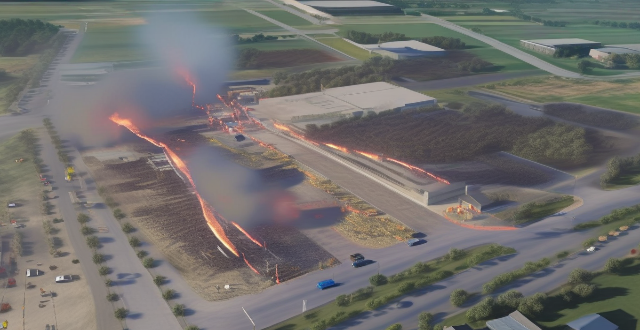
What measures should be taken to prevent fires in high-rise buildings ?
High-rise buildings face unique fire safety challenges due to their height, occupant density, and complex systems. To prevent fires in these structures, various measures can be taken, including engineering solutions like smoke control systems, fire-resistant construction, and automatic sprinkler systems. Administrative actions such as developing a fire safety plan, conducting training and drills, and implementing clear signage and emergency lighting are also crucial. Additionally, legislative measures, including compliance with building codes and insurance requirements, play a vital role in ensuring fire safety. By combining these approaches, high-rise buildings can significantly reduce fire risks and protect occupants.

How is climate change affecting global temperatures ?
Climate change, largely due to human activities like burning fossil fuels and deforestation, is causing a rise in global temperatures. This has led to more frequent and severe extreme weather events, melting ice caps, ocean warming and acidification, changes in precipitation patterns, impacts on biodiversity, and challenges for agriculture. The situation calls for immediate action to reduce greenhouse gas emissions and adapt to the changing climate.
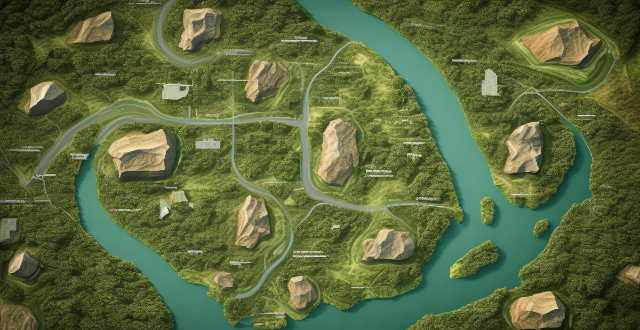
Can climate change cause extinction of certain species ?
Climate change has the potential to cause the extinction of certain species through a variety of mechanisms including rising temperatures, changes in precipitation patterns, loss of habitat, and disruption of food webs. It is essential that we take action to mitigate the effects of climate change and protect vulnerable species before it's too late.
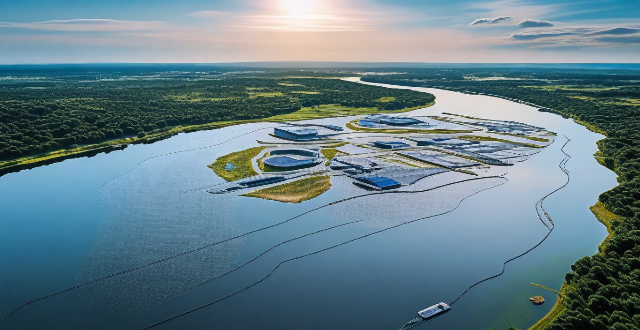
How does climate change affect water resources and availability ?
Climate change affects water resources and availability through melting glaciers, changes in precipitation patterns, sea level rise, increased evaporation rates, and impacts on ecosystems. These impacts can lead to water scarcity, flooding, contamination of freshwater sources, and declines in biodiversity. To mitigate these effects, it is important to reduce greenhouse gas emissions and implement adaptation strategies such as improved water management and conservation measures.

How does climate change affect the quality and availability of drinking water ?
This article discusses the various ways in which climate change affects the quality and availability of drinking water, including changes in precipitation patterns, melting glaciers, sea level rise, temperature increase, extreme weather events, and wildfires. It also explores adaptation strategies such as water conservation measures, infrastructure improvements, protection of water sources, and policy and regulation to mitigate these risks and ensure a sustainable water future for all.
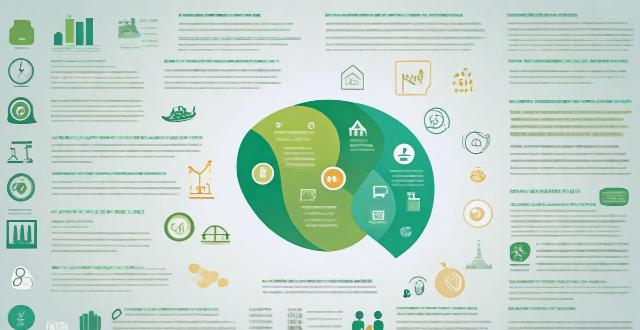
How will climate change influence future job markets ?
The article discusses how climate change will influence future job markets. It highlights the increased demand for green jobs, a shift toward resilient industries, and potential declines in certain sectors that contribute to greenhouse gas emissions or rely heavily on fossil fuels. Additionally, remote work opportunities may rise due to extreme weather events and environmental concerns. The article concludes by emphasizing the need for individuals and organizations to adapt to these changes in the job market.

How does climate change influence job security in coastal regions ?
Climate change significantly impacts job security in coastal regions through direct effects such as sea level rise, increased storm intensity, and changes in ocean temperatures. These environmental changes directly affect industries like fishing, tourism, agriculture, and infrastructure, leading to job losses or reduced hours for employees. Indirectly, climate change can cause economic displacement, public health concerns, and policy changes that create new job opportunities while potentially reducing jobs in other sectors. Addressing these challenges requires coordinated efforts from various stakeholders to adapt to changing conditions and transition towards more resilient economic systems.
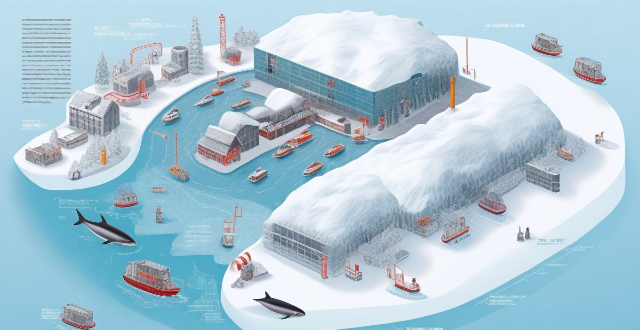
How does climate change affect the environment ?
The article discusses the various impacts of climate change on the environment, including rising temperatures leading to melting glaciers and ice sheets, changes in precipitation patterns causing droughts and extreme rainfall events, and extreme weather events such as heat waves and hurricanes. It also highlights the loss and fragmentation of habitats due to range shifts and coral reef bleaching, as well as the loss of biodiversity through direct effects like species extinction and population declines, and indirect effects like food web disruptions and disease spread. The article emphasizes the need for urgent action to reduce greenhouse gas emissions and implement adaptation strategies to mitigate these impacts on our planet's ecosystems.
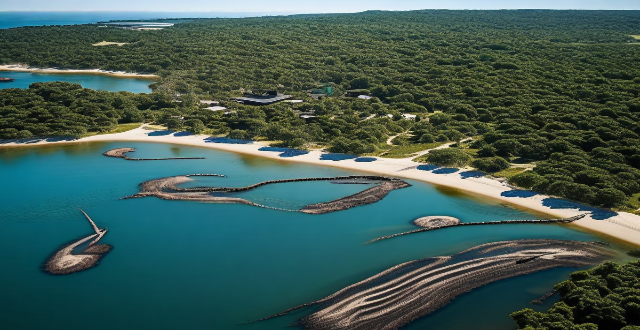
Which countries are most affected by climate refugees ?
The text discusses the issue of climate refugees, individuals displaced due to the impacts of climate change such as sea-level rise, extreme weather events, and alterations in ecosystems. It provides a detailed exploration of the nations most affected by this growing crisis, including Bangladesh, Small Island Developing States (SIDS), Nigeria, Fiji, Vietnam, Indonesia, and Pacific Nations. The countries face various challenges such as sea-level rise, cyclones and flooding, droughts, storm damage, coastal erosion, saltwater intrusion, forest fires, land subsidence, island depopulation, and resource scarcity. The text concludes that addressing this complex issue requires international cooperation, strategic planning, and innovative solutions to mitigate both the causes and effects of climate displacement.
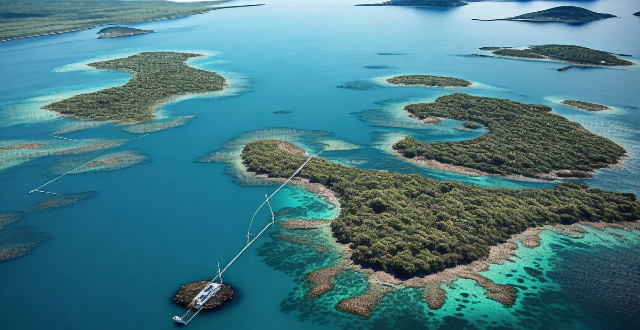
How does climate change affect biodiversity and ecosystems ?
Climate change, driven by human activities, significantly impacts biodiversity and ecosystems through various mechanisms such as temperature increase, changes in precipitation patterns, sea level rise, ocean acidification, extreme weather events, and altered species interactions. These effects can lead to extinction risk, habitat loss, food web disruption, and imbalances in ecosystem dynamics. Mitigating climate change and adapting to its consequences is crucial for preserving biodiversity and ecosystems.
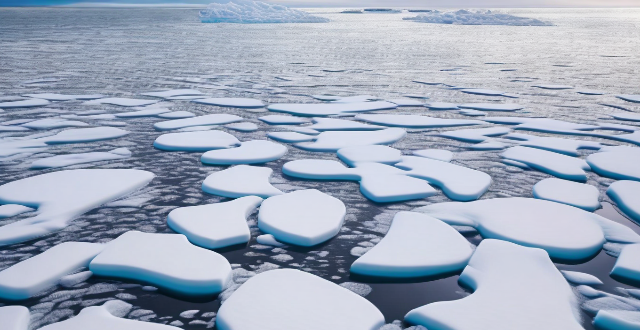
What are the impacts of climate change on sea levels ?
Climate change is causing sea levels to rise, which can have devastating consequences on coastal communities and ecosystems. The melting of ice sheets in Greenland and Antarctica, thermal expansion, loss of coastal wetlands, and increased erosion and flooding are all impacts of climate change on sea levels. It is essential to take action to mitigate the effects of climate change and protect our planet's ecosystems and communities from further harm.
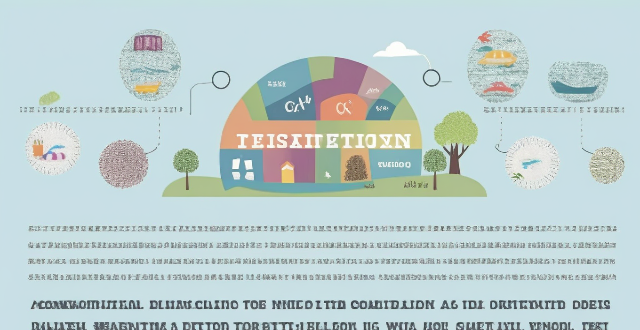
What is the relationship between climate change and extreme weather events ?
The text discusses the correlation between climate change and extreme weather events. It outlines how climate change, caused by human activities such as burning fossil fuels and deforestation, leads to an overall rise in global temperatures, affecting precipitation patterns and increasing storm intensity. This results in more frequent and severe heatwaves, changes in rainfall leading to floods or droughts, and more intense storms including hurricanes, cyclones, and typhoons. The essay concludes that there is a clear relationship between climate change and extreme weather events, and emphasizes the urgency of taking action to mitigate climate change and adapt to its impacts.

How does sea level rise impact public health, especially in coastal areas ?
Sea level rise, driven by global warming and climate change, poses significant threats to public health in coastal areas through flooding and storm surge, waterborne diseases, environmental health hazards, mental health concerns, economic impacts, and social determinants of health. Addressing this challenge requires a multifaceted approach that includes adaptation strategies, improved infrastructure resilience, and mitigation efforts to reduce greenhouse gas emissions.
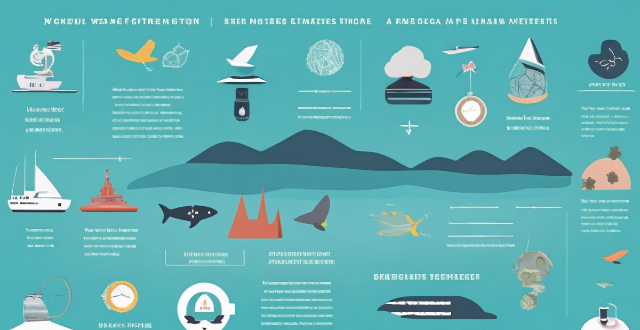
What are the potential impacts of climate change on different sectors ?
Climate change affects various sectors differently. In agriculture, changes in crop yields, shifts in planting seasons, increased pest and disease pressure, and water scarcity may occur. Health issues include heat-related illnesses, spread of diseases, air quality problems, and mental health concerns. Economic impacts involve job losses, infrastructure damage, supply chain disruptions, and investment risks. Environmental effects encompass loss of biodiversity, ocean acidification, deforestation, and sea level rise. It is crucial for all stakeholders to take measures to mitigate these impacts and adapt to the changing climate.
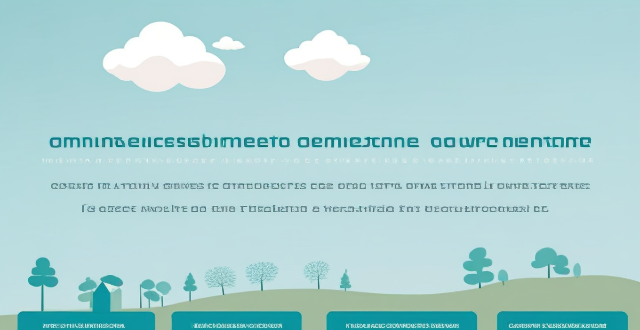
What are the potential consequences of ignoring climate change ?
The text discusses the potential consequences of ignoring climate change, including environmental effects such as extreme weather events and loss of biodiversity, economic disruptions like damage to agriculture and infrastructure, public health issues including the spread of diseases and heat-related illnesses, and social impacts such as forced migration and reduced quality of life. It emphasizes the importance of addressing climate change to avoid these catastrophic implications for our planet and all life on it.
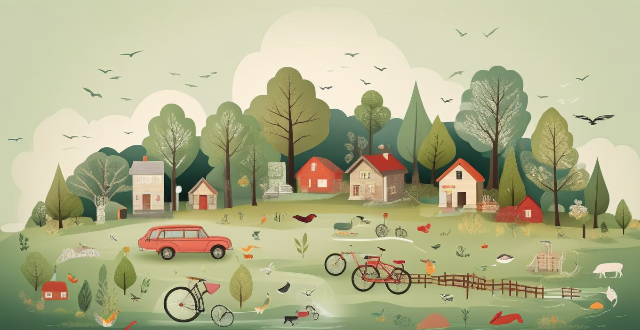
How does climate change impact social justice ?
Climate change has significant impacts on social justice, affecting marginalized communities, health outcomes, economic stability, migration patterns, and gender equality. Mitigation efforts to reduce greenhouse gas emissions and adaptation strategies to build resilience against the impacts of climate change are necessary to create a more equitable future for all.
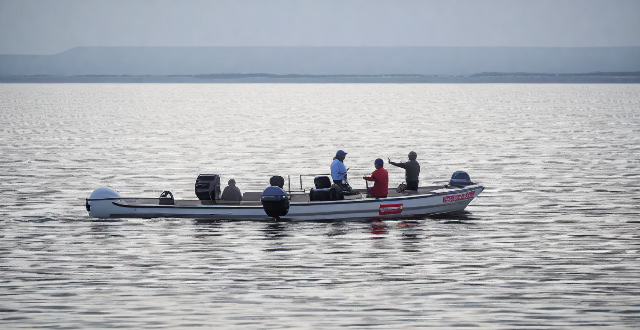
How does climate change affect the fishing industry ?
Climate change affects the fishing industry through changes in water temperature, ocean acidification, extreme weather events, changes in fisheries management policies, and economic impacts. These factors can lead to overfishing, reduced fish populations, damage to infrastructure and equipment, disruption of natural habitats, and decreased profitability for fishermen. To address these challenges, sustainable management practices and international cooperation are necessary to ensure the long-term viability of the fishing industry.

How does climate change influence extreme weather events such as hurricanes, droughts, and floods ?
The influence of climate change on extreme weather events is significant, leading to more frequent and intense hurricanes, droughts, and floods. Warmer sea surface temperatures provide more energy for hurricanes to form and grow, while altered precipitation patterns and rising evaporation rates exacerbate drought conditions. Changes in precipitation patterns and sea level rise also increase the risk of flooding. These events can result in significant damage to communities, ecosystems, and infrastructure. It is crucial for individuals, governments, and organizations to take action to mitigate the effects of climate change and adapt to these changing conditions.
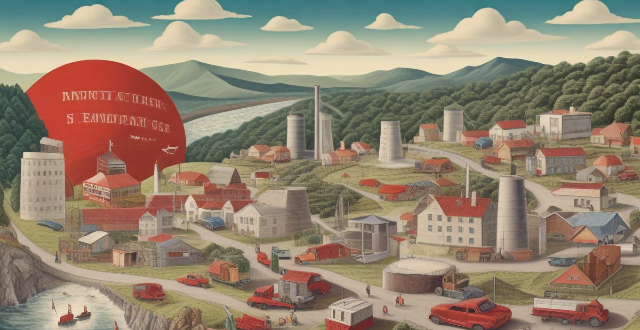
How does climate change impact national security ?
Climate change impacts national security in various ways, including economic disruption, social unrest, and political instability. To mitigate these effects, it is essential to take action at both the national and international levels, such as reducing greenhouse gas emissions, investing in renewable energy sources, and adapting to the inevitable changes brought about by climate change.
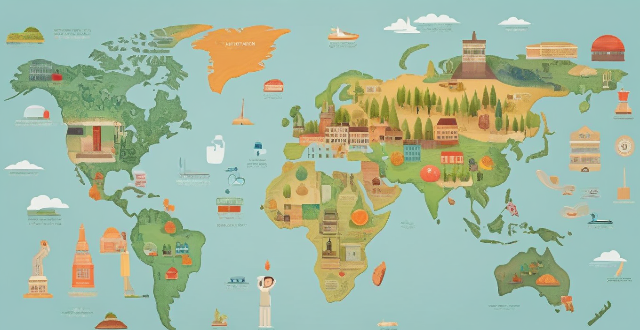
What are some examples of how climate change has exacerbated poverty in certain regions ?
Climate change significantly exacerbates poverty in various regions worldwide. It affects livelihoods, food security, health, displacement, and economic stability, disproportionately impacting impoverished communities. Addressing climate change is crucial for alleviating poverty.

What are the impacts of climate change on human health ?
Climate change affects human health in various ways, including increased heat-related illnesses, extreme weather events, changes in disease patterns, food and water security issues, and mental health impacts. It is important to take action to mitigate these effects and protect public health.
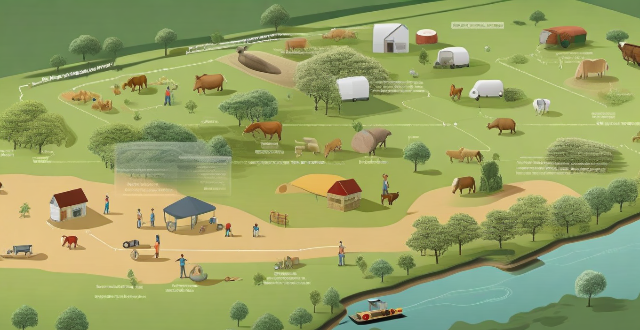
What are the economic consequences of climate change ?
The article discusses the economic consequences of climate change, including its impact on agriculture, tourism, energy, and infrastructure. In agriculture, decreased crop yields, loss of biodiversity, and increased extreme weather events can lead to higher food prices and reduced agricultural income for farmers. In tourism, loss of natural attractions, changes in seasonality, and health risks can result in reduced tourism revenue for affected regions. In energy, increased demand for cooling systems, disruption of energy production facilities, and transition to renewable energy sources can create new economic opportunities but also require significant investment and adaptation. In infrastructure, damage to critical infrastructure like roads, bridges, and buildings can result in costly repairs and replacements for governments and private sector organizations. Addressing these challenges requires coordinated action by governments, businesses, and individuals to reduce greenhouse gas emissions and adapt to the changing climate.
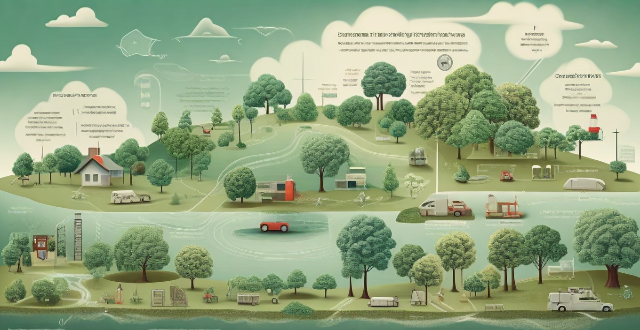
How do climate change and biodiversity loss intersect ?
Climate change and biodiversity loss are interconnected issues that impact each other significantly. Climate change can lead to habitat loss, altered migration patterns, and changes in prey-predator relationships, all of which can result in reduced populations or even extinction for some species. On the other hand, biodiversity loss can reduce carbon sequestration, compromise soil health and water regulation, and impair ecosystem services that help mitigate climate change. Urgent action is needed from all stakeholders to address these challenges and protect our planet's fragile ecosystems.

What are the effects of climate change on biodiversity and ecosystems ?
Climate change has significant effects on biodiversity and ecosystems, including habitat loss, changes in species distribution, altered ecosystem functioning, extinction risk, and impacts on human well-being.
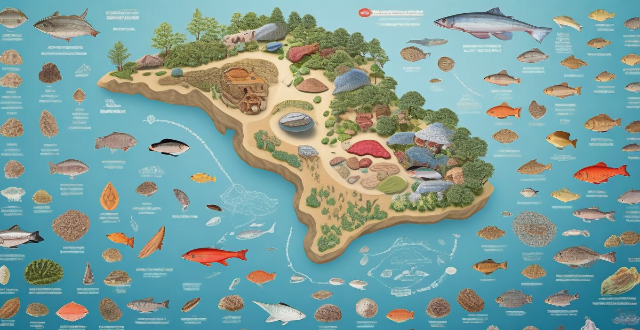
How does climate change affect biodiversity ?
This article explores how climate change affects biodiversity by altering ecosystems, species distribution, and genetic diversity. It discusses the impact of rising temperatures on habitat loss and altered precipitation patterns, ocean acidification on coral reefs and phytoplankton communities, and extreme weather events on fires and storms. The article also highlights the loss of genetic diversity due to reduced resilience and functional homogeneity in ecosystems, as well as inbreeding depression and genetic bottlenecks in species. Addressing climate change is essential for conserving biodiversity and maintaining healthy ecosystems.

In what ways does climate change exacerbate existing food insecurity issues ?
Climate change exacerbates food insecurity by causing unpredictable weather, altering crop yields, increasing pest and disease outbreaks, contributing to biodiversity loss, and impacting fisheries. Addressing these challenges requires a comprehensive approach that includes adaptation strategies, sustainable agriculture practices, and efforts to mitigate the effects of climate change.
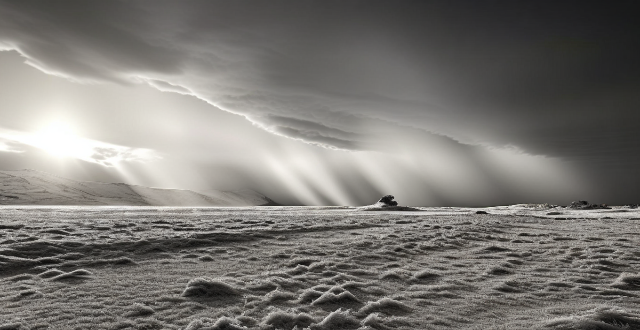
How do extreme weather events relate to climate change ?
Extreme weather events, such as hurricanes, heatwaves, floods, and droughts, have become more frequent and intense in recent years due to climate change caused by human activities. Climate change leads to increased temperatures, changes in precipitation patterns, stronger storms, and impacts on ecosystems. Examples of extreme weather events linked to climate change include Hurricane Sandy, Australian Bushfires, European Heatwaves, and the Indian Ocean Dipole. It is crucial to take action to mitigate the effects of climate change and adapt to the changing climate.